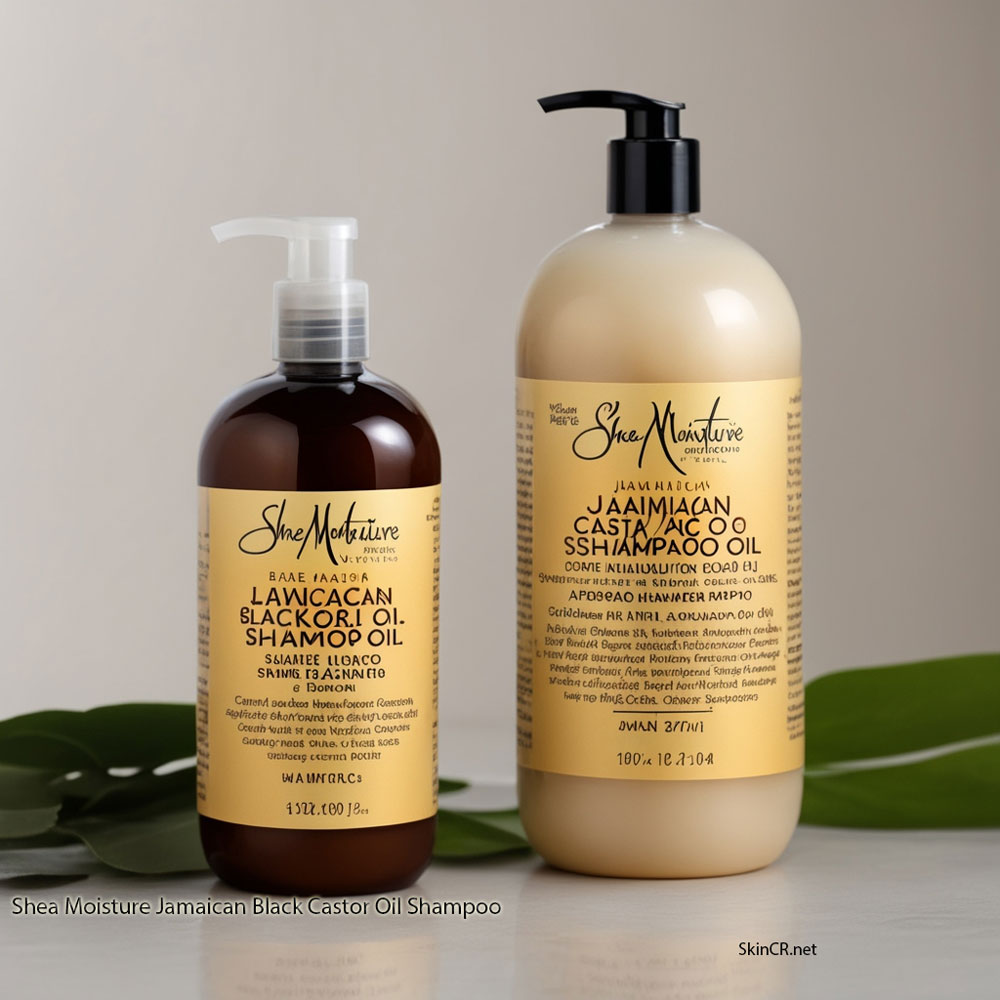When it comes to maintaining healthy and clean skin, the choice between soap bars and body wash can be a difficult one. Both options have their advantages and disadvantages, and your decision should depend on your skin type, personal preferences, and specific needs. In this comprehensive guide, we will explore the differences between soap bars and body wash, and how they cater to various skin types, including oily, dry, and sensitive skin. We will also delve into the professional perspective, as dermatologists weigh in on the soap bar vs. body wash debate. Furthermore, we will discuss the disadvantages of body wash and whether you can use both bar soap and body wash together. Finally, we’ll compare two popular options – Dove bar soap and Dove body wash – to help you make an informed choice for your skincare routine.

Chapter 1: Soap Bar vs. Body Wash vs. Soap
To kick off our exploration of the soap bar vs. body wash debate, let’s start by understanding the fundamental differences between these cleansing options:
Soap Bars:
- Soap bars have been a staple in personal hygiene for centuries and are available in solid form.
- The production of soap bars typically involves the mixing of fats or oils with an alkali, such as lye, through a process known as saponification.
- One of the notable characteristics of soap bars is their longevity; they tend to last longer compared to liquid alternatives.
- Soap bars come in various types, catering to different skin types and preferences, including moisturizing, exfoliating, and natural or organic options.
Body Wash:
- Body wash, as the name suggests, is a liquid soap designed for use in the shower or bath.
- Unlike traditional soap bars, body washes are usually formulated with a variety of ingredients, including moisturizers, fragrances, and skin conditioners.
- They are available in a wide range of scents and textures, providing consumers with diverse options to suit their personal preferences.
- Many body washes have specific formulations to address various skin concerns, such as dryness, acne, or sensitivity.
Traditional Liquid Soap:
- Traditional liquid soap is often used for handwashing, rather than for bathing.
- It tends to be milder and less moisturizing compared to body wash or soap bars.
- While it may be less commonly used for full-body cleansing, it’s essential for everyday hand hygiene and preventing the spread of germs.
Understanding the distinctions between these three cleansing options is crucial for making an informed decision about which one best aligns with your skin type, preferences, and overall skincare goals. In the subsequent chapters, we will delve deeper into the suitability of soap bars and body washes for various skin types, providing you with the knowledge needed to make the right choice for your skincare routine.

Chapter 2: Soap Bar vs. Body Wash for Oily Skin
Dealing with oily skin can be a challenge, as it often leads to issues like clogged pores and acne breakouts. The choice between a soap bar and body wash can significantly impact how you manage these concerns. Let’s explore how each option caters to individuals with oily skin.
Soap Bars for Oily Skin:
- Soap bars can be particularly effective for those with oily skin due to their natural oil-absorbing properties.
- Activated charcoal soap bars, for example, can help draw out excess oil and impurities from the skin.
- Tea tree oil-infused soap bars are also a popular choice for oily skin, as tea tree oil has natural antibacterial properties that can help combat acne.
- The gentle exfoliation provided by some soap bars can help prevent clogged pores and breakouts.
Body Wash for Oily Skin:
- When selecting a body wash for oily skin, look for products that contain exfoliating ingredients like salicylic acid or glycolic acid.
- These chemical exfoliants help remove dead skin cells, unclog pores, and reduce the likelihood of acne.
- Some body washes designed for oily skin are specifically formulated to combat excess oil production, promoting a matte finish.
- It’s essential to avoid heavily moisturizing body washes if you have oily skin, as they can exacerbate the issue.
Ultimately, the choice between a soap bar and body wash for oily skin depends on your personal preferences and the specific needs of your skin. Both options can be effective, provided you choose products with suitable ingredients to manage excess oil and prevent acne breakouts. In the subsequent chapters, we will explore how these options fare for dry and sensitive skin, as well as provide insights from dermatologists on the soap bar vs. body wash debate.

Chapter 3: Soap Bar vs. Body Wash for Dry Skin
Dry skin requires extra care and hydration to maintain its health and prevent issues like flakiness and discomfort. The choice between a soap bar and body wash plays a crucial role in addressing the unique needs of dry skin. Let’s dive into how each option caters to individuals with dry skin.
Soap Bars for Dry Skin:
- Soap bars made with glycerin are an excellent choice for those with dry skin. Glycerin is a natural humectant that helps lock in moisture and prevents the skin from drying out.
- Some soap bars also contain shea butter, which provides deep hydration and nourishment for dry skin.
- Avoid soap bars that contain harsh detergents or strong fragrances, as these can strip the skin of its natural oils and exacerbate dryness.
Body Wash for Dry Skin:
- Body washes formulated for dry skin are often enriched with oils such as coconut, shea, or almond oil. These oils provide a deep level of hydration and leave the skin feeling soft and supple.
- Look for body wash options that are hypoallergenic and fragrance-free to minimize the risk of skin irritation.
- Some body washes may also contain ingredients like ceramides, which help strengthen the skin’s natural barrier and lock in moisture.
When deciding between a soap bar and body wash for dry skin, consider the level of hydration your skin needs and your personal preferences. Both options can be effective, provided you choose products with ingredients that prioritize moisturization. In the upcoming chapters, we’ll explore how these choices apply to sensitive skin and discuss the insights of dermatologists in the soap bar vs. body wash debate.
Chapter 4: Soap Bar vs. Body Wash for Sensitive Skin
Sensitive skin requires extra care and attention to avoid irritation, redness, and discomfort. The choice between a soap bar and body wash is crucial in ensuring a gentle and soothing cleansing routine. Let’s explore how each option caters to individuals with sensitive skin.
Soap Bars for Sensitive Skin:
- Unscented and hypoallergenic soap bars are a safe bet for those with sensitive skin. Fragrances can be a common trigger for skin irritation, so avoiding scented products is essential.
- Goat milk-based soap bars are known for their gentle and soothing properties. They can provide a creamy lather and nourish the skin without causing irritation.
- Oatmeal-based soap bars are another excellent choice, as oatmeal has anti-inflammatory properties that can help calm sensitive skin.
Body Wash for Sensitive Skin:
- Body washes designed for sensitive skin typically come with labels such as “fragrance-free” and “hypoallergenic.”
- Look for ingredients like aloe vera, chamomile, or calendula in body washes for sensitive skin. These natural ingredients have calming and anti-inflammatory properties.
- Some body washes may contain colloidal oatmeal, which is known for its ability to relieve itching and soothe irritated skin.
When choosing between a soap bar and body wash for sensitive skin, prioritize gentle and soothing formulations. Both options can be effective, provided you select products that are free of common irritants and contain ingredients to calm and protect sensitive skin. In the following chapters, we will delve into the professional perspective of dermatologists on the soap bar vs. body wash debate and explore potential disadvantages of body wash for all skin types.
Chapter 5: Bar Soap vs. Body Wash – A Dermatologist’s Perspective
Dermatologists are the experts when it comes to skincare, and their insights are invaluable for making informed decisions about the best cleansing products for your skin. Let’s explore what dermatologists have to say about the soap bar vs. body wash debate.
- Gentle Formulations for All Skin Types: Many dermatologists recommend gentle, fragrance-free, and hypoallergenic options for all skin types. These formulations are less likely to cause irritation or allergic reactions.
- Medicated Cleansers: For individuals with specific skin concerns, dermatologists may suggest medicated body washes or prescription cleansers. These may contain ingredients like benzoyl peroxide for acne-prone skin, sulfur for sensitive skin, or salicylic acid for exfoliation.
- Tailoring the Cleanser to Your Skin: Dermatologists emphasize the importance of selecting a cleanser that matches your skin type and specific needs. They often recommend consulting with a dermatologist to identify the right products for your unique skin concerns.
- Soap Bars Are Generally Safe: While body washes offer a wide variety of formulations and scents, soap bars are generally considered safe for cleansing. However, it’s crucial to choose a soap bar that matches your skin type and doesn’t contain harsh ingredients or fragrances.
Dermatologists play a vital role in helping individuals choose the most suitable cleansing products for their skin. Their recommendations are based on scientific knowledge and expertise, ensuring that your skincare routine is tailored to your skin’s specific needs. In the upcoming chapters, we will explore potential disadvantages of body wash and discuss whether it’s possible to use both bar soap and body wash together for an effective skincare regimen.
Chapter 6: Disadvantages of Body Wash
While body washes have gained immense popularity in recent years for their convenience and diverse formulations, they do have their share of disadvantages to consider. Understanding these drawbacks can help you make an informed choice when deciding between body wash and other cleansing options.
- Environmental Concerns:
- One of the most significant disadvantages of body wash is its packaging. Most body washes come in plastic containers, contributing to the growing issue of plastic waste and environmental pollution. Some brands offer refill stations or eco-friendly packaging, but this is not yet the industry standard.
- Potential for Skin Irritation:
- Body washes can contain a wide range of ingredients, including fragrances, preservatives, and surfactants. These ingredients, while providing a luxurious sensory experience, can also be problematic for individuals with sensitive or allergy-prone skin. Fragrances, in particular, are known to cause skin irritation in some cases.
- Cost Considerations:
- High-quality body washes, especially those with premium ingredients, can be more expensive than traditional soap bars. While this may not be a disadvantage for everyone, it’s something to keep in mind for those on a budget.
- Less Economical:
- In comparison to soap bars, body washes tend to be less economical. Liquid body washes are dispensed easily, often leading to overuse, which means the product may not last as long as a solid soap bar.
- Difficulty in Portability:
- If you’re a frequent traveler or someone who prefers the simplicity of bar soap, body wash may not be the most convenient option. Liquid body wash requires special travel-sized containers and can be more challenging to pack without the risk of spillage.
- Limited Sustainability Efforts:
- While some body wash brands are making efforts to reduce their environmental impact, many still fall short in terms of sustainability. This includes issues related to ingredient sourcing, production methods, and packaging.
It’s important to note that these disadvantages are not universal, and there are body wash products available that address some of these concerns. However, as a conscientious consumer, being aware of these potential drawbacks can guide your decision-making process when selecting the right cleansing product for your skincare routine. In the following chapter, we will explore the possibility of using both bar soap and body wash together as part of an effective skincare regimen.
Chapter 7: Can You Use Bar Soap and Body Wash Together?
The world of skincare is diverse, and for those with specific skin concerns, using both bar soap and body wash in tandem can offer a comprehensive solution. Let’s explore the advantages and considerations of using these two cleansing products together for an effective skincare regimen.
Advantages of Using Both Bar Soap and Body Wash:
- Customization: Using both bar soap and body wash allows you to tailor your skincare routine to your specific needs. You can select a soap bar that addresses primary cleansing while choosing a body wash that provides added benefits like hydration or exfoliation.
- Deep Cleansing: Bar soap is excellent at removing surface impurities, while body wash can provide a deep and moisturizing cleanse. Combining these two products ensures that you address both surface and deeper cleaning needs.
- Skin Type Compatibility: If you have different skin types on various parts of your body, using both products allows you to cater to those differences. For example, you may have an oily T-zone on your face but dry arms and legs.
Considerations for Using Both Bar Soap and Body Wash:
- Compatibility: Ensure that the products you select work well together. Combining a harsh soap bar with an equally harsh body wash may lead to skin irritation.
- Overuse: It’s easy to overuse products when using both bar soap and body wash. Be mindful of the amount you use, as excessive cleansing can strip the skin of natural oils.
- Time and Effort: Using both products can take a little extra time in your daily routine. If you prefer simplicity, this may not be the best option for you.
- Storage: Keeping both products in your shower or bathroom can be challenging due to space limitations. Consider your storage options before adopting this approach.
In summary, using both bar soap and body wash together can be a beneficial skincare strategy, especially if you have specific skin concerns on different parts of your body. However, it’s essential to choose products that complement each other and be mindful of potential overuse. For those who prefer a straightforward skincare routine, using one product that caters to your primary needs might be a more convenient option. In the upcoming chapter, we will compare two popular options, Dove bar soap and Dove body wash, to help you make an informed choice for your skincare regimen.
Chapter 8: Dove Bar Soap vs. Dove Body Wash
Dove is a well-known brand in the world of skincare products, offering various cleansing options to cater to different preferences and skin types. In this chapter, we’ll compare Dove bar soap and Dove body wash to help you decide which one might be the better choice for your skincare routine.
Dove Bar Soap:
- Moisturizing Formula: Dove bar soap is renowned for its moisturizing properties. It contains 1/4 moisturizing cream that helps maintain the skin’s natural moisture balance. This makes it an excellent choice for those with dry or sensitive skin.
- Gentle Cleansing: Dove bar soap is known for its mild and gentle cleansing action, making it suitable for individuals with sensitive skin. It helps to retain the skin’s natural oils, preventing excessive dryness.
- Hypoallergenic: Most Dove bar soaps are formulated to be hypoallergenic and free of harsh ingredients, which makes them less likely to cause skin irritation or allergic reactions.
- Range of Formulations: Dove offers a variety of bar soap options, including the classic White Beauty Bar and various scented and unscented variations to cater to different preferences.
Dove Body Wash:
- Deep Moisturization: Dove body washes are designed to provide deep moisturization. They contain NutriumMoisture technology, which nourishes the skin and helps it stay hydrated throughout the day.
- Exfoliating Varieties: Dove body washes come in a range of formulations, including exfoliating options that can help remove dead skin cells and promote a smoother skin texture.
- Fragrance Options: Dove body washes offer a wide range of scents, allowing you to choose your preferred fragrance for a luxurious shower experience.
- Catering to Specific Skin Needs: Dove body washes are available in formulations targeting specific skin concerns, such as dry skin, sensitive skin, or acne-prone skin.
Choosing Between Dove Bar Soap and Dove Body Wash:
The choice between Dove bar soap and Dove body wash ultimately depends on your skin type, personal preferences, and specific skincare needs. Here are some considerations to guide your decision:
- Dry or Sensitive Skin: If you have dry or sensitive skin, Dove bar soap’s moisturizing and gentle properties may be the best choice for you.
- Deep Moisturization: If deep moisturization is your primary concern, Dove body wash with NutriumMoisture technology can provide the extra hydration your skin needs.
- Exfoliation: If you’re looking for exfoliation, consider a Dove body wash with exfoliating properties.
- Fragrance Preference: Dove body wash offers a wider variety of scents, making it a great choice if you enjoy a specific fragrance in your skincare routine.
- Specific Skin Concerns: If you have specific skin concerns like acne or sensitivity, Dove body wash may offer formulations tailored to address those issues.
In conclusion, both Dove bar soap and Dove body wash have their unique advantages, and the best choice depends on your skin type and personal preferences. Dove’s commitment to gentle and moisturizing formulas makes it a trusted brand for many individuals seeking effective skincare products.
Conclusion
In the soap bar vs. body wash debate, there’s no one-size-fits-all answer. Your choice should depend on your skin type, preferences, and specific skin concerns. Whether you opt for a soap bar, body wash, or a combination of both, maintaining healthy skin requires careful consideration and the right products. Remember to consult with a dermatologist if you have unique skincare needs or concerns. Ultimately, the key to healthy skin is finding the right balance between cleansing and moisturizing to achieve a healthy, glowing complexion.



